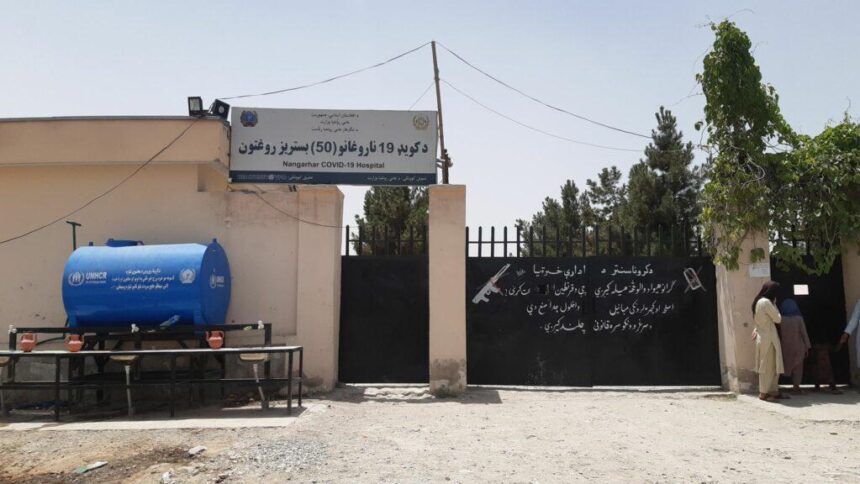RASC News Agency: Amid Afghanistan’s deepening economic crisis under Taliban rule, doctors and medical staff at Nangarhar’s Infectious Diseases Hospital report they have not received salaries for four consecutive months. The staff have issued a warning: if their overdue wages are not paid by the end of this month, they will go on strike a move that could paralyze a critical healthcare facility serving war-affected and impoverished communities in eastern Afghanistan. Once a leading treatment center during the COVID-19 pandemic, the hospital now functions at minimal capacity, restricted primarily to treating children suffering from measles. Its deterioration stems from severe mismanagement under the Taliban regime, compounded by chronic medicine shortages, ongoing power outages, and the lack of financial support. These intersecting crises have brought the hospital to the brink of total shutdown.
“We haven’t received any wages in four months,” said one doctor, speaking on condition of anonymity due to fear of reprisal. “We can’t afford rent, electricity, or basic necessities. Our families depend on these salaries for survival. Yet the Taliban show no concern for our situation if anything, they seem to exploit our vulnerability.” The doctor added that the regime’s consistent failure to address the concerns of healthcare workers despite repeated appealscunderscores its administrative incompetence and inability to manage even the most fundamental state responsibilities.
In a formal letter addressed to the Taliban’s Ministry of Public Health and the Nangarhar Directorate of Health, a group of hospital employees stated they would cease all medical services unless their salaries were paid in full by month’s end. The warning highlights a growing crisis within Taliban governance structures, where essential workers are left unsupported and unheard.
Multiple attempts by RASC and other domestic news agencies to contact Naqeebullah Rahimi, the Taliban-appointed spokesperson for the provincial Directorate of Health, were ignored. Phone calls and WhatsApp messages received no response reflecting a broader pattern of institutional silence toward public grievances. Doctors at the facility note that their salaries were previously provided by the World Health Organization (WHO). However, following the suspension of U.S. funding and a steep decline in international engagement, the Taliban have failed to secure replacement financial resources.
“We still come to work because of our commitment to the medical oath,” said another physician. “But the Taliban continue to ignore our rights and offer no solutions to the growing national health emergency. If we are not paid this month, we will have no choice but to stop working. This is not our decision it is the result of relentless pressure, both internal and external.” Medical professionals warn that without immediate action, the hospital may be forced to shut down entirely further weakening an already crippled healthcare system in Nangarhar. The World Health Organization has also issued a stark warning: over 220 health centers across Afghanistan could close due to a lack of funding. Such closures would leave nearly 10% of the Afghanistani population without access to even the most basic health services.
A WHO representative in Afghanistan stated:
“If the funding gap is not urgently addressed, the situation will deteriorate further, leaving thousands without life-saving care. This is a direct consequence of Taliban mismanagement and their failure to mobilize financial or human resources for the health sector.” This unfolding healthcare crisis reveals the Taliban’s structural dysfunction and endemic corruption. Their failure to address Afghanistan’s mounting public health and economic challenges has not only undermined their domestic legitimacy but also pushed international partners further away leaving millions of Afghanistanis exposed to deepening humanitarian catastrophe.






